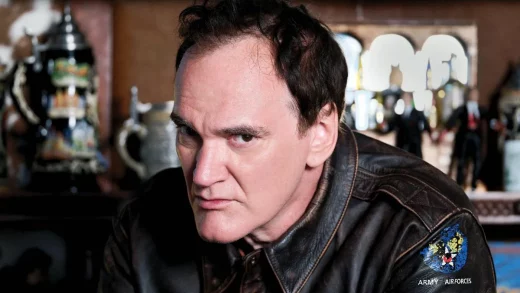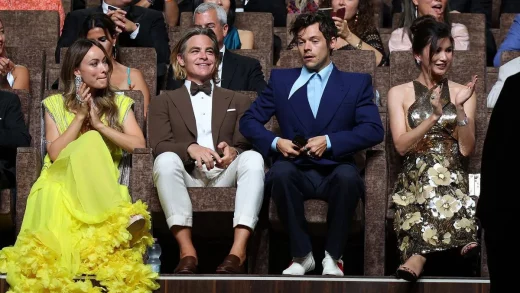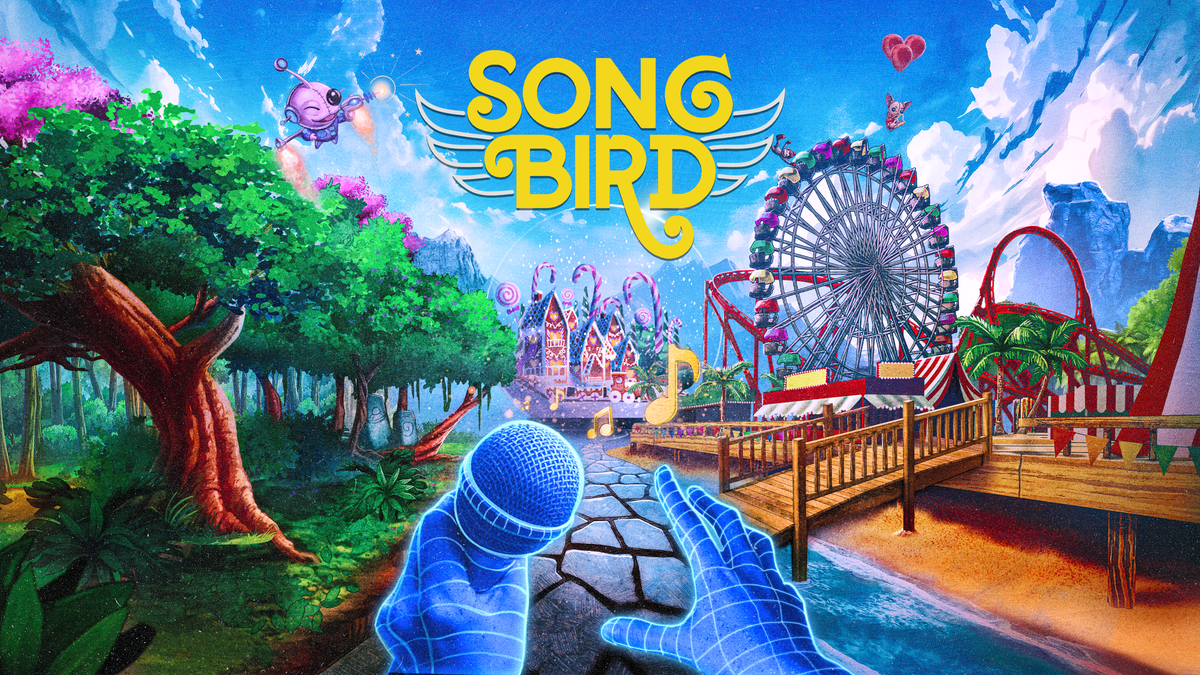
What goes into designing a VR karaoke game? With Songbird’s recent launch on Quest, we interviewed the creative director to learn more.
Developed by Always Blue Games, Songbird takes a different approach to karaoke games. Swapping USB microphones from the SingStar days for the Quest’s integrated microphone, you’re tasked with performing across various stages to bring harmony to the world of Nestopia. 33 songs are available at launch and while each stage features three difficulty levels, you can’t fail.
I recently interviewed Marcus Henderson, founder and creative director at Always Blue Games, via a video chat. Henderson’s history stretches back to the older Guitar Hero games and Bandfuse: Rock Legends, but he was also a producer on Unplugged Air Guitar. His passion is immediately clear, stating he’s more interested in creating a fun experience than sales.
“Having shipped so many games, the metric for me is not units sold, but if this game makes some people happy. I don’t care if it sells one copy or anything at all, I just want one person to pick up this game and go, “I experienced something on this platform, and it brought me joy.” That’s something that we experienced with Guitar Hero, and that feeling is infectious.”
Everyone at Always Blue Games has a musician background, and Henderson believes music games are often used as therapy or “some sort of competitive cudgel” that tests your skills against someone. He considers adding competitive elements to such games challenging, stating how everyone’s relationship with music is entirely different.
“We as humans created harmonic structure. We created music. We assembled these parts because we need it, because it feeds us emotionally. It keeps us going, keeps us alive. As someone who’s been into VR since I was a kid, I was fascinated with its vast potential. Even then, I was like, you can sell the experience of somebody who can never conduct an orchestra to experience that feeling.”
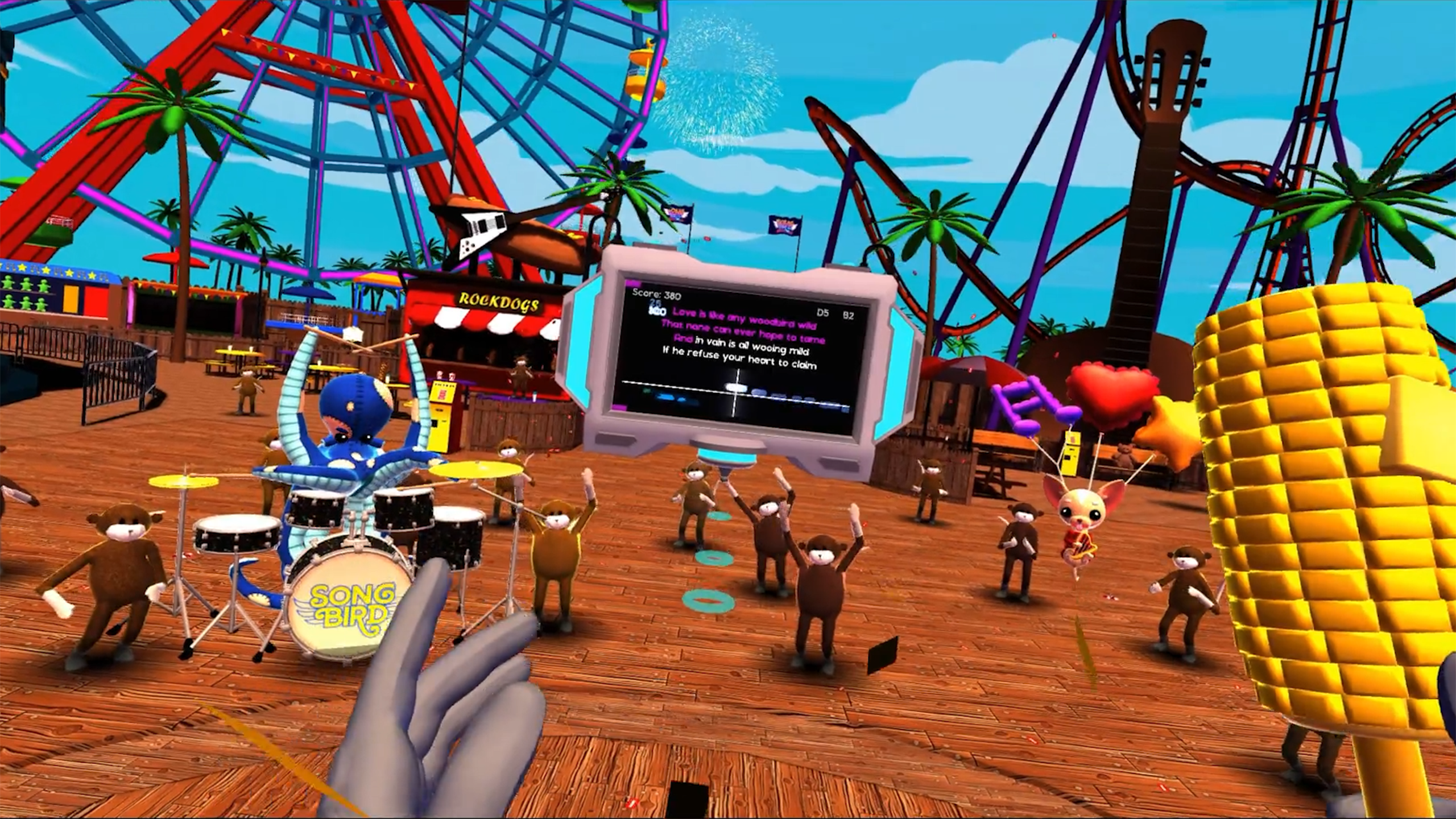
Henderson’s been interested in VR ever since reading Mondo 2000 as a kid. Though he joined Unplugged later on in the development cycle, this experience taught him much about what people want from VR.
“There’s almost two different camps; video gaming may be in the middle of the Venn diagram here, but VR playing and console playing are two different animals completely. What people expect in VR is quite different from what they expect on console. I learned a lot about what people expect, what they gravitate towards, and I tried to apply it to this project.”
Commenting on the “gamification” of VR, Henderson informed me he’s less interested in porting pre-existing titles and more interested in exploring new mechanics. That eventually led him to create Songbird after leaving Vertigo, believing people would be interested in a game like this “if it was presented properly.”
He also believes we’re currently in “the Nintendo 64 era of VR” and that VR games are only scratching the surface.
“I think it’s an incredible thing right now, but I think we’re only scratching the surface of what’s to come. If we stop innovating and trying as game developers, then the platform doesn’t really grow. And then we end up bogging down and that’s not where my spirit is. As a developer, I want to push it. If it doesn’t work, it doesn’t work. But at least I tried. I want to see people sing. I want to see people come together through this game.”
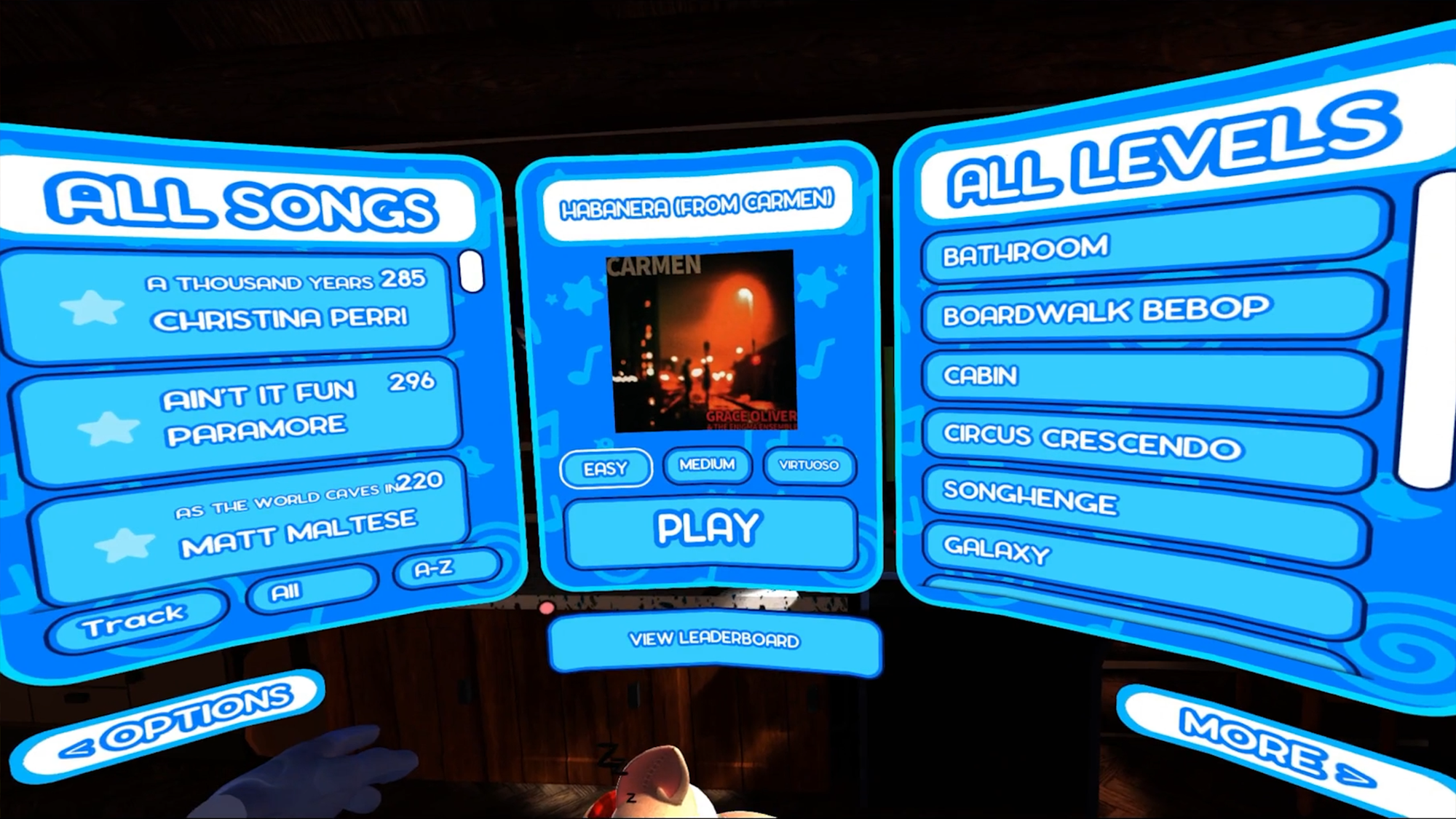
Going into Songbird’s gameplay design, the team aimed to make this as accessible for a wider audience as possible. That’s why you can’t fail songs.
“If I’m singing my heart out, and I get two stars or three stars, that sucks. That really discourages me because it reminds me that I suck as a singer personally, so I wanted to have it a little looser. I wanted people to get into the game and feel like it isn’t a straight mirror on everything. We wanted it to be a bit more forgiving.”
There’s no movement, so things like hearts or stars you’ll need to catch come to you while singing. You can’t fail songs but you can earn extra points by following prompts on the board, like dancing or air guitar sections. Every song is unlocked from the start.
“Those design choices were made for us. We’re literally just like a punk band formed from other punk bands over the years. We were fighting against this specter of doom and gloom, microtransactions, NFTs, all the things that we as devs just absolutely abhor. Because we’re controlling the entire project, we get to implement all those design theories. When you start the game, you sing to start. There’s no X button, you just sing.”
Touching upon previous flatscreen karaoke games, Always Blue Games aims to go beyond staring at a lyrics board. Henderson says that’s reflected in the world design, stating the team wanted to make Nestopia a welcoming environment through the use of bright, warm colors, while the world’s critters are your audience.
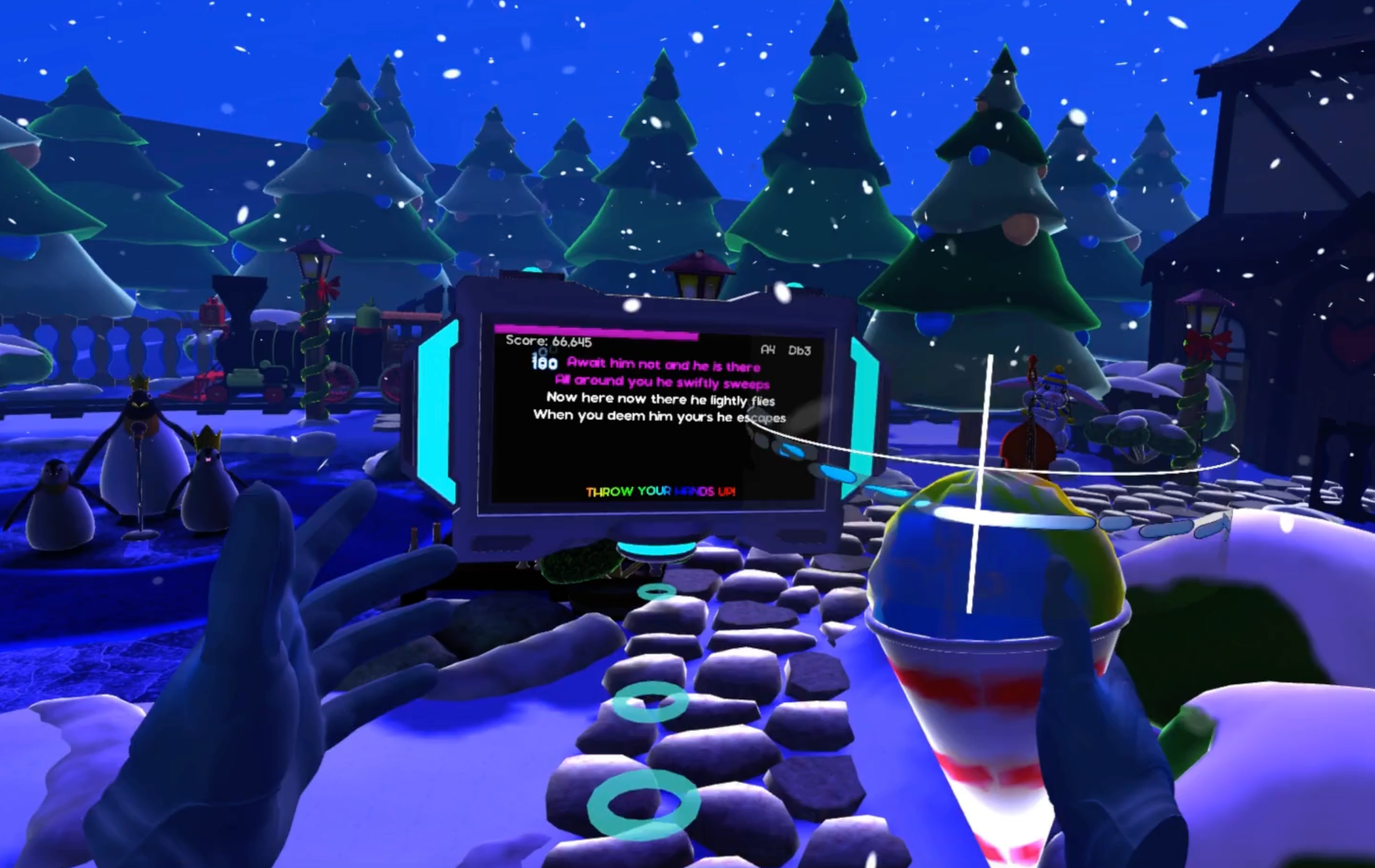
Noting that the game only supports single-player gameplay beyond physically passing your headset to someone else, I queried whether multiplayer was ever considered. Henderson believes the game lends itself to a social structure, and I’m told that it’s “very much in our plans moving forward” if they can find the intended audience.
“You’ll be able to sing with somebody in Austria, while your other bandmates are in Canada and Japan. You’ll all come together to pull your scores together.”
While it’s not a game designed only for kids, the intention was to make a game where you could pass the headset to everyone. Keeping it accessible for all ages played a big part in choosing the game’s setlist; there had to be “no lascivious content, no swearing, no edgelords, and no double entendres.”
Discussing the process behind choosing a setlist, Henderson states the team began with a list of songs they believed would work for Songbird. I’m told there are various approaches.
“You could go for hits that will look great on the back of the box, but maybe they’re not super fun to sing or great to sing on repeat. We wanted to create a profile of what makes a good Songbird song. Part of that was, “Does it make you feel good? Does it move you emotionally? Does it resonate with you?” We’re in a weird time in history where everybody’s feeling everything really hard. It had to be easy to sing and, for the most part, give you some sort of satisfaction.”
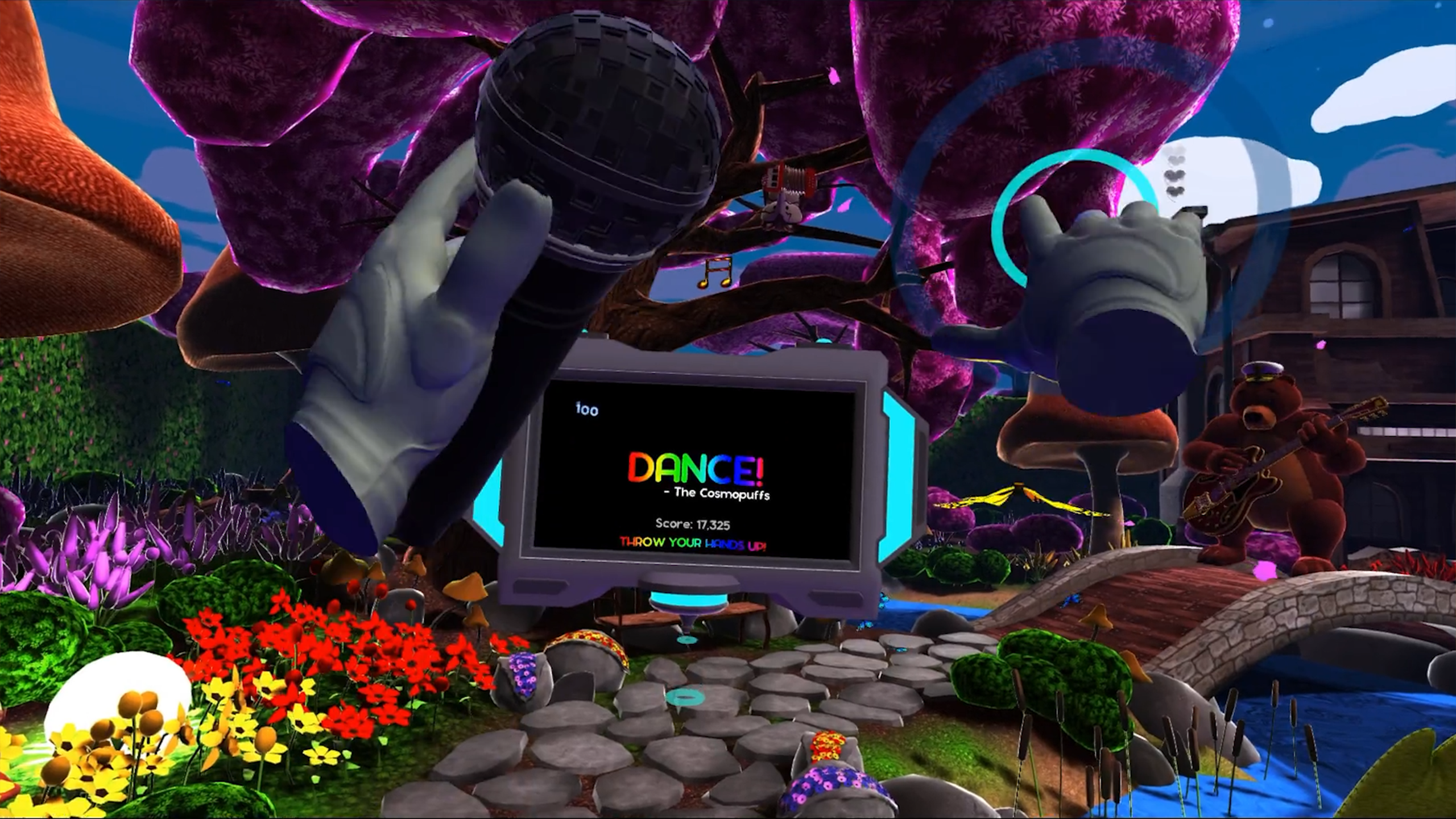
Given the nature of licensing, it’s unsurprising to learn that not every requested song made the cut. However, further monthly song packs are coming and while he couldn’t detail specifics, focused artist packs are on the cards.
“Putting out a song pack seems like the easy way out, so how can we make it special? To add new characters, to do mixed theme packs, to do potentially licensed theme packs with environments. We want to make it an event, so I’m going to keep that one close to the vest, but we’re well aware of what works in this space. Every single month, when we start spinning up the DLC every month, that should be an event.”
Always Blue Games doesn’t intend to slow down anytime soon. Alongside these monthly song packs, Henderson explains that they’ll continue tweaking the game with quality-of-life improvements as they aim to build a community. It’s hard not to smile at his resolve.
“I would rather go broke as an indie studio, telling everybody we love them early on while building this, instead of just sitting around counting installs and looking at the metrics for everything based on what the returns will be financially.”
Songbird is available now for $24.99 on the Meta Quest platform.

